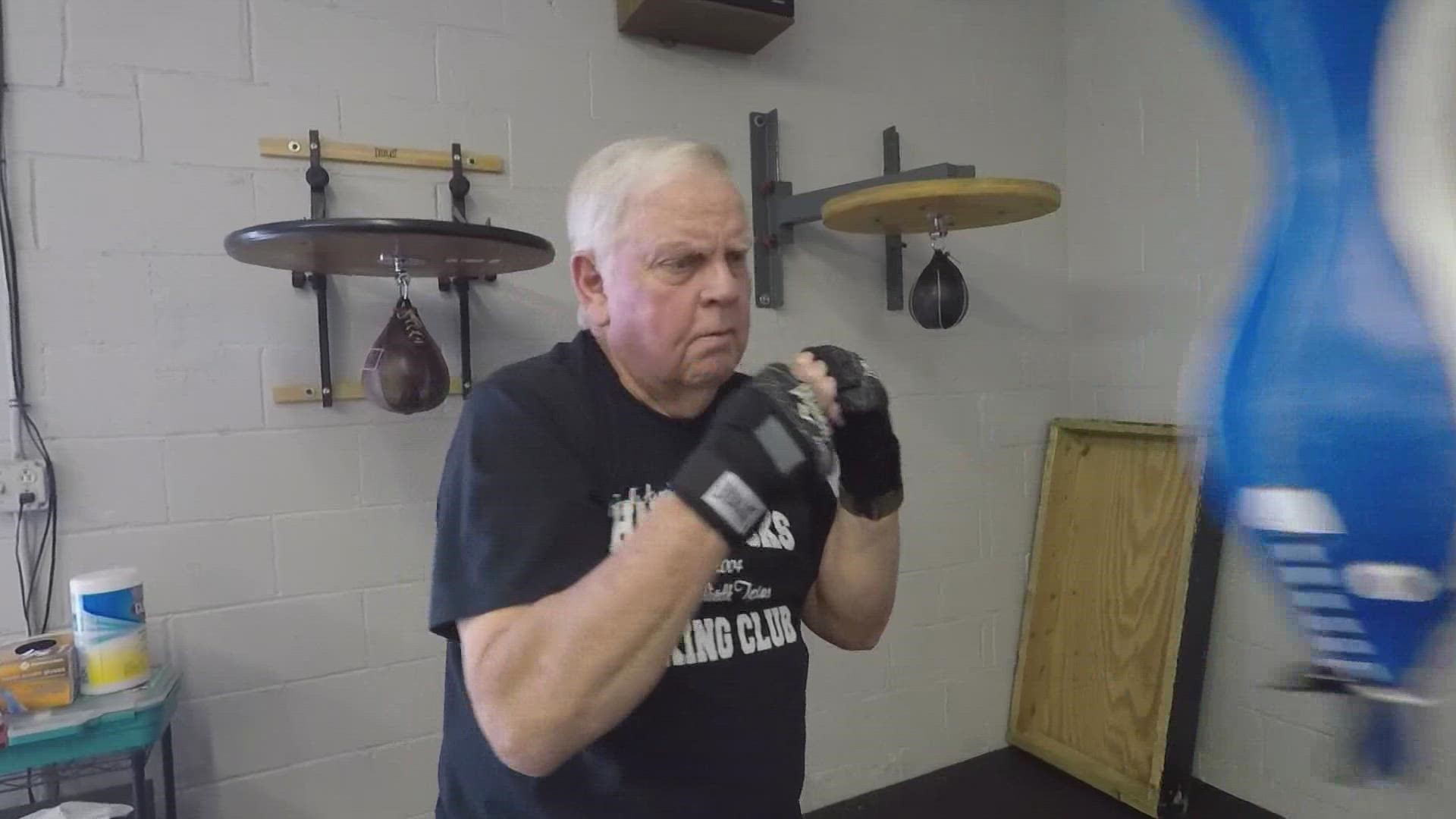FORT WORTH, Texas — To find a few 60 and 70 somethings boxing and punching, and bobbing and weaving in the back room of Paulie Ayala's University of Hard Knocks Gym in Fort Worth is not an unusual occurrence.
Researchers at TCU are now trying to find out why the decade-old program for Parkinson's patients shows such good results, and are hoping to quantify how to make those benefits last.
"It does something for me," Tony Walker, 68, said after a Tuesday morning workout session at the Punching Out Parkinson's program that Paulie Ayala started back in 2011. "I'm not the invalid I was before."
Walker was diagnosed with Parkinson's in 2016 and has been working out at Ayala's gym for the past two years.
"It builds strength and eye-hand coordination. And it just keeps me going," said Tina Hargrove, 66, of Benbrook.
One of the original participants who started at the gym in 2011, Hargrove swears by its physical and cognitive benefits, as she battles her Parkinson's diagnosis too.
What is new at the gym these days is the arrival of Christopher Watts, Ph.D., who is the Marilyn & Morgan Davies dean of TCU's Harris College of Nursing & Health Sciences.
Watts has partnered with Ayala, and eight of the Punching Out Parkinson's participants, to identify and document exactly how the exercises used in the boxing program impact and stimulate the nervous system, improve motor skills, and improve cognitive function.
"We really wanted to study this scientifically," Watts said. "We want to scientifically test if this 'Punching out Parkinson's' exercise program can impact Parkinson's disease in a positive way, and will that impact last over time. And the hypothesis is that it will."
So for the next year, they will follow and study people, like Hargrove and Walker, and try to scientifically quantify why punching back against Parkinson's has the benefits it does.
Walker, who turned 68 Tuesday, April 18, hopes they can find the answers and keep pushing toward further understanding Parkinson's and contribute to an eventual cure.
"I guess body in motion stays that way," Walker said, when asked why he believes the boxing therapy works. "I don't know."
According to the Parkinson's Foundation, nearly one million people in the U.S. are living with Parkinson's disease and approximately 60,000 Americans are diagnosed with PD each year.
Meanwhile Ayala, the champion boxer who started the Parkinson's program at his Fort Worth gym in 2011, admits he doesn't know the science behind it either. But he said it's an opponent he promises to keep fighting.
"As long as I know that what I do works and it's helping, then I'm gonna [sic] be a part of it," said Ayala.
Part of the physical therapy, part of pushing science forward - until Parkinson's is punched out for good.
TCU also operates a web resource for Parkinson's patients and their families. It can be found at parkinsonology.com.

